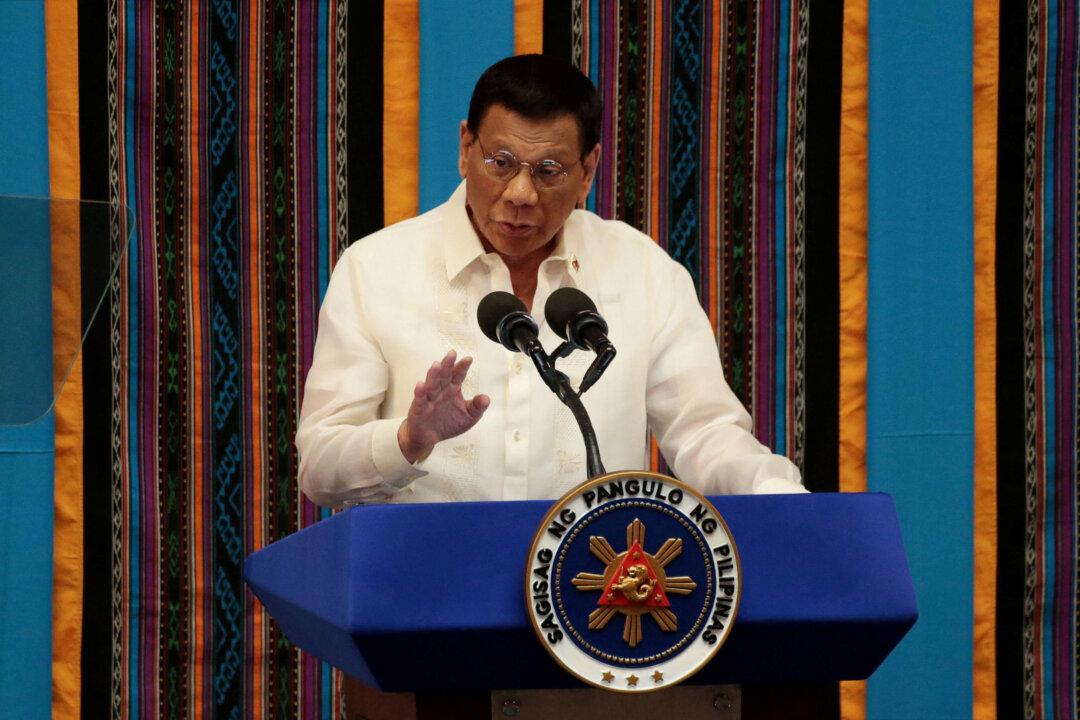MANILA—Philippine President Rodrigo Duterte has warned of “unfriendly” treatment for foreign ships traveling in the country’s territorial waters without permission, in a rare swipe at China’s use of warships just a few miles off Manila’s coast.
Duterte’s frustration over multiple sightings this year of Chinese warships moving within the country’s 12-mile territorial sea, at various locations in the archipelago, was relayed on Aug. 20 by his spokesman Salvador Panelo.





